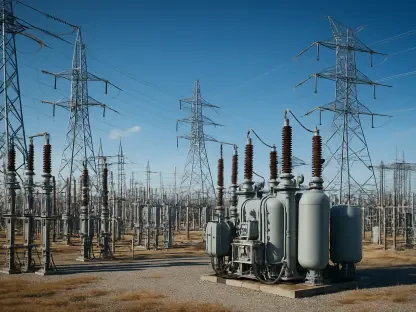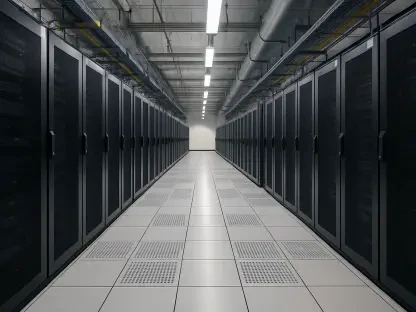In a world increasingly desperate for sustainable solutions to combat climate change, Brazil has emerged as a beacon of progress by achieving a groundbreaking milestone in its energy sector, with wind and solar power accounting for an unprecedented 34% of the nation’s electricity generation in August. This historic first signals a profound shift from traditional hydropower reliance. This remarkable feat, driven by equal contributions from wind and solar at 17% each, showcases Brazil’s commitment to diversifying its energy mix amid growing environmental challenges like drought, which have long threatened hydroelectric stability. As Latin America’s largest economy, Brazil’s rapid transition offers a glimpse into how emerging markets can balance economic growth with environmental responsibility. This achievement not only underscores a strategic pivot toward clean energy but also positions the country as a potential global leader in the renewable energy space, inspiring others to follow suit.
The Rise of Renewable Energy in Brazil
Unprecedented Growth in Wind and Solar Capacity
Brazil’s journey toward renewable dominance has been marked by an extraordinary expansion in wind and solar power infrastructure over recent years. Solar capacity alone has surged to over 55 gigawatts by mid-this year, a staggering leap from near-zero levels just a decade ago, while wind power continues to thrive, especially in the northeast where consistent trade winds provide optimal conditions. Data from the National Electric Energy Agency indicates that in the past year, the country added nearly 11 gigawatts of new capacity, with over 90% stemming from these two sources. Supportive government policies, including tax breaks and energy auctions, have played a pivotal role in attracting international investment from major players in the sector. This rapid growth not only reflects technological advancements but also a national determination to reduce vulnerability to climate-driven disruptions in hydropower, setting a robust foundation for a more resilient energy future.
Economic and Environmental Benefits Driving Adoption
Beyond the impressive numbers, the shift to renewables in Brazil carries significant economic and environmental advantages that are reshaping the nation’s landscape. Nearly 45% of the country’s primary energy demand is now met by clean sources, enhancing energy security and stabilizing electricity costs for both industries and households. Residential solar installations, in particular, have gained traction, with many families seeing their energy bills drop by as much as 90%, fueling widespread consumer interest. Environmentally, this transition cuts down on greenhouse gas emissions, aligning with global climate goals while reducing reliance on fossil fuels. Additionally, the renewable sector has spurred job creation in areas like installation, maintenance, and technology development, contributing to local economies. This dual impact of economic savings and ecological benefits illustrates why Brazil’s renewable push is gaining momentum and serves as a model for sustainable development in other regions.
Challenges and Future Prospects for Brazil’s Energy Transition
Grid Integration Hurdles and Infrastructure Gaps
Despite the remarkable strides in renewable energy, Brazil faces substantial challenges in integrating these sources into its national grid, which was originally built to support large hydroelectric dams rather than intermittent power from wind and solar. Curtailments, where renewable output is deliberately reduced to avoid overloading the system, have become a recurring issue, raising concerns among investors about the reliability of returns on multi-billion-dollar projects. Reports from the national grid operator highlight multiple instances of such limitations over the past year, underscoring the urgent need for modernized infrastructure. Without significant upgrades to transmission lines and the adoption of smart grid technologies, these bottlenecks risk slowing the pace of renewable expansion. Addressing this issue remains a critical priority if Brazil is to maintain its trajectory toward ambitious targets, such as reaching 140 gigawatts of wind and solar capacity by 2030.
Innovative Solutions and Global Leadership Potential
Looking ahead, Brazil is actively exploring innovative solutions to overcome its grid challenges and solidify its position as a global leader in the energy transition. Investments in battery energy storage systems and advanced grid management technologies are on the horizon, aimed at smoothing out the variability of renewable sources and ensuring consistent power delivery. Industry experts emphasize that accelerating these initiatives, alongside regulatory reforms, will be essential to sustaining growth and avoiding future curtailments. On the international stage, Brazil’s experience offers valuable lessons for developing economies seeking scalable renewable models, potentially influencing global commodity markets and boosting exports of green technologies. By navigating the delicate balance between ambition and practical constraints, the country stands poised to shape the future of clean energy, providing a blueprint for others. Reflecting on past efforts, the commitment shown in achieving recent milestones has laid crucial groundwork for these advancements.
Shaping a Sustainable Energy Legacy
In retrospect, Brazil’s record-breaking reliance on wind and solar power in August marked a turning point that highlighted both the potential and the pitfalls of a rapid energy transition. The nation demonstrated how strategic investments and favorable policies could transform an energy landscape, even as it grappled with systemic limitations. Moving forward, the focus must shift to actionable steps like expediting grid modernization and scaling storage solutions to prevent infrastructure from becoming a bottleneck. Partnerships with global technology providers could further accelerate the adoption of cutting-edge tools, ensuring that renewable growth remains uninterrupted. Additionally, fostering dialogue among policymakers, investors, and local communities will be vital to aligning economic incentives with environmental goals. Brazil’s journey thus far proves that a sustainable energy legacy is within reach, offering inspiration and practical insights for nations worldwide striving to build resilient, clean-energy-driven futures.









